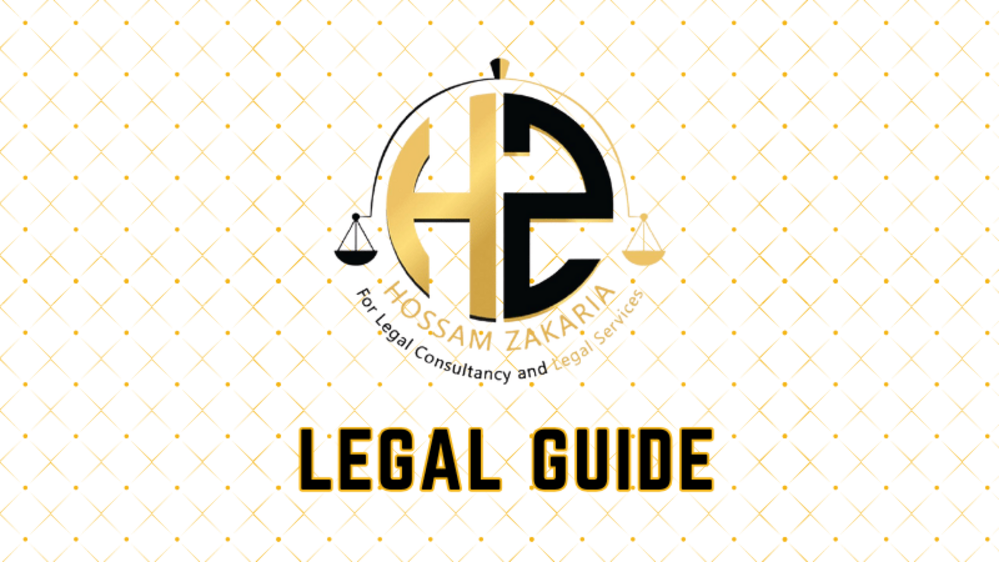Introduction: Redefining Dispute Resolution in Saudi Arabia
Saudi Arabia has rapidly evolved into a regional powerhouse for foreign direct investment (FDI), attracting investors across various sectors from the Middle East and beyond. Against this backdrop, the kingdom’s legal framework for arbitration has undergone significant reform, aligning itself with international standards and strengthening investor protections. For UAE-based businesses and their counsel, a robust understanding of these developments is indispensable—especially as cross-border deals with Saudi partners become increasingly routine.
The significance of arbitration in Saudi Arabia extends beyond mere dispute resolution. It is a vital tool for mitigating risks, fostering investor confidence, and ensuring that commercial arrangements are enforced fairly and efficiently. Recent legal updates, such as Saudi’s adoption of the UNCITRAL Model Law via the Kingdom’s Arbitration Law (Royal Decree No. M/34 of 2012, as amended), and an invigorated enforcement system, have positioned arbitration as the preferred mechanism for resolving commercial disputes involving foreign investments. This transformation holds considerable relevance for UAE corporations, legal practitioners, investment advisers, and HR leaders seeking secure, compliant, and future-ready business transactions in Saudi Arabia.
This in-depth analysis unpacks the architecture of Saudi arbitration, scrutinizes the 2012 Arbitration Law and complementary regulations, and delivers pragmatic guidance to enhance business interests, minimize legal exposure, and adapt to a rapidly changing legal environment.
Table of Contents
- Understanding Arbitration Under Saudi Law
- The Regulatory Landscape: Royal Decree No. M/34 of 2012 and Related Instruments
- Institutional Infrastructure: The Saudi Center for Commercial Arbitration
- Enforcement of Arbitral Awards in Saudi Arabia
- Comparative Review: Old and New Positions on Arbitration
- Practical Guidance for UAE Investors and Legal Counsel
- Case Studies: Arbitration in Action
- Risks of Non-Compliance and Compliance Strategies
- Conclusion: Shaping Investor Confidence Through Compliant Arbitration
Understanding Arbitration Under Saudi Law
What Is Arbitration in the Saudi Context?
Arbitration is a consensual, private dispute resolution mechanism whereby disputing parties agree to submit their disagreements to one or more impartial arbiters, whose decision (the arbitral award) is binding. Under Saudi law, arbitration is recognized not merely as an alternative to court litigation, but as a fully legitimate and enforceable pathway for dispute resolution—particularly within the context of international and high-value commercial contracts.
Historically, Saudi arbitration had certain idiosyncrasies due to the application of Sharia law and the kingdom’s unique judicial heritage. In the past decade, however, Saudi Arabia has engineered a seismic shift by modernizing its legal framework, harmonizing its rules with UNCITRAL standards, and ensuring enforceable arbitral awards, even where non-Saudi law is chosen, provided the fundamentals of Sharia are observed.
Why Arbitration Matters for Foreign Investment
For companies in the UAE contemplating ventures or partnerships in Saudi Arabia, arbitration is invaluable for:
- Mitigating jurisdictional uncertainties.
- Offering flexible, confidential, and expedited dispute settlement.
- Ensuring awards are enforceable through the Saudi Execution Courts.
- Building investor confidence by reducing exposure to local court litigation.
The Regulatory Landscape: Saudi’s Arbitration Law and Related Regulations
Legislative Basis: Royal Decree No. M/34 of 2012 (Arbitration Law)
The most impactful milestone in Saudi Arabia’s arbitration reform is the promulgation of the Arbitration Law via Royal Decree No. M/34 of 2012, modeled closely on the UNCITRAL Model Law—a globally recognized gold standard. This law, in conjunction with the Implementing Regulations (Council of Ministers Resolution No. 541/1438), underpins the modern Saudi arbitration landscape.
Key features include:
- Party autonomy: Parties can select the seat, rules, language, and law of the arbitration.
- Institutional support: Designation of the Saudi Center for Commercial Arbitration (SCCA) and recognition of international arbitral bodies.
- Limited judicial intervention: Courts intervene narrowly, primarily at the recognition and enforcement stage or to support the arbitral proceedings as needed.
- Recognition of foreign arbitral awards: Incorporates provisions for enforcing foreign awards consistent with the New York Convention (ratified by Saudi Arabia).
Summary Table: Arbitration Law v. Previous Regime
| Feature/Aspect | Prior Regime (pre-2012) | Current Law (M/34 2012) |
|---|---|---|
| Choice of Law | Sharia law only; limited party autonomy | Parties may select foreign law (provided no Sharia conflict) |
| Institutional Arbitration | Ad hoc or Sharia Boards; no dedicated centers | Recognized institutions (e.g., SCCA, ICC) |
| Judicial Support/Intervention | Significant court oversight during proceedings | Narrow grounds for court intervention only |
| Enforcement Mechanisms | Uncertain, judges often re-examined merits | Enforcement courts must recognize awards unless clear public policy breach |
| Arbitrator Qualifications | Local-centric, Sharia-literate required | Parties may appoint international arbitrators; no nationality restrictions |
Critical Legal Provisions at a Glance
- Article 2: Applicability to all commercial disputes, including those with a foreign element.
- Article 9: Recognition of the arbitration agreement’s validity, irrespective of the underlying contract’s fate.
- Article 50: Grounds for setting aside an arbitral award are strictly limited (e.g., incapacity, invalid agreement, procedural infractions, public policy violations).
Institutional Infrastructure: The Saudi Center for Commercial Arbitration
Establishment and Role of the SCCA
The Saudi Center for Commercial Arbitration (SCCA), established by Council of Ministers Resolution No. 257/1435, has modernized dispute resolution by providing world-class facilities, arbitrator panels, and rules aligned with best international practice. The SCCA:
- Administers domestic and international disputes under its own rules or as an appointing authority.
- Offers expedited procedures, digital hearings, and a roster of experienced arbitrators (including non-Saudis and women).
- Supports transparency and neutrality, vital for cross-border investments by UAE-based entities.
Enforcement of Arbitral Awards in Saudi Arabia
The Enforcement Process
One of the cornerstones encouraging foreign investment is the effective enforcement of arbitration awards. Saudi Arabia’s accession to the New York Convention (1958) guarantees that arbitral awards made in contracting states (including the UAE) are enforceable, subject to limited exceptions based on public policy or procedural irregularities.
The Saudi Enforcement Law (Royal Decree No. M/53 of 2012) and its regulations have established specialized Enforcement Courts. These courts are specifically mandated to process and enforce arbitral awards, including those rendered abroad, provided they do not contravene Saudi public policy or Sharia principles.
Practical Flowchart Suggestion
Visual Aid Suggestion: A process flowchart depicting “From Award to Enforcement”—depicting submission of award to the Enforcement Court, scrutiny for public policy violations, execution order, asset seizure, or compliance by the losing party.
Enforcement Risks and Mitigation
- Be mindful of public policy checks—ensure that contractual provisions and arbitral awards do not conflict with core Sharia tenets (e.g., interest/riba).
- Draft clear, enforceable arbitration clauses referencing governing law and seat of arbitration.
- Engage experienced legal counsel for complex or sensitive disputes where public policy risks may arise.
Comparative Review: Old and New Legal Positions on Arbitration
| Aspect | Previous Law | 2012 Law & Current Practice |
|---|---|---|
| Recognition of Foreign Awards | Very limited, case-by-case scrutiny; frequent re-litigation | New York Convention applies; streamlined process, rare refusals |
| Party Autonomy | Severely curtailed | Significantly enhanced, subject to public policy/Sharia |
| Arbitrator Appointment | Generally locals/experts in Sharia only | International experts permitted; broader pool |
| Procedural Flexibility | Rigid, overly formal, lengthy | Modern, parties may tailor procedures |
Practical Guidance for UAE Investors and Legal Counsel
Drafting Arbitration Agreements: Best Practices
- Explicitly designate the seat of arbitration (e.g., Riyadh, Dubai, Paris).
- Specify the rules and administering institution (e.g., SCCA, ICC, LCIA).
- Define the language of arbitration proceedings.
- Address selection/number of arbitrators, qualifications, and fee arrangements.
- Ensure compliance with Saudi public policy (e.g., nullify any interest/riba-based obligations).
Sample Arbitration Clause (SCCA-Recommended)
“Any dispute, controversy, or claim arising out of or relating to this contract, including its formation, validity, interpretation, breach, or termination, shall be resolved by arbitration administered by the Saudi Center for Commercial Arbitration (SCCA) in accordance with its Arbitration Rules.”
Ensuring Enforceability: Checklist for UAE Investors
| Action Item | Purpose | Consultancy Tip |
|---|---|---|
| Use model/arbitration clauses vetted for Sharia/ Saudi law | Avoid challenges at enforcement | Engage local specialist to review |
| Select recognized institutions | Smoother process if SCCA or ICC chosen | Consider dual venue clauses if appropriate |
| Appoint experienced arbitrators | Reduce procedural risk | Keep a mix of local/international expertise |
| Record proper notice/service of claims | Avoid set-aside on procedural grounds | Maintain meticulous documentation |
Case Studies: Arbitration in Action
Case Study 1: Enforcing a UAE-Seated Award in Saudi Arabia
Background: A UAE joint venture wins an ICC arbitration seated in Dubai against a Saudi counterparty for breach of contract. The tribunal awards damages, and the claimant seeks enforcement in Saudi Arabia.
Result: The award is submitted to the Saudi Enforcement Court. After confirming no conflict with Saudi public policy or Sharia (e.g., interest/riba claims are excluded), the court issues an execution order. The award is enforced, with assets attached within weeks.
Takeaway: Selecting a reputable institution (ICC), ensuring no Sharia conflicts, and proper documentation proved decisive.
Case Study 2: Challenge Based on Public Policy
Background: A European firm obtains a damages award, including a component for compounded interest, against a Saudi party. At enforcement, the Saudi respondent objects based on Sharia incompatibility.
Result: The Enforcement Court enforces the award, less the portion relating to interest, citing non-compliance with Saudi public policy.
Takeaway: Awards violating core Sharia tenets (notably riba) are vulnerable to partial or total refusal, making careful drafting essential.
Practical Insight:
Foreign parties should engage Saudi legal experts early in the contract phase to anticipate and preempt enforcement hurdles, particularly on public policy grounds.
Risks of Non-Compliance and Compliance Strategies
Key Risks
- Arbitral awards may be unenforceable if they contravene Saudi public policy (notably in issues of riba/interest or alcohol/drugs).
- Improper service, lack of due process, or incomplete documentation can lead to set-aside or refusal at the enforcement stage.
- Choosing non-recognized institutions or failing to specify a proper seat can delay enforcement or prompt judicial challenges.
Compliance Strategies for UAE Entities
- Early Due Diligence: Scrutinize counterparties for enforceability risk and arbitration culture.
- Contract Review: Regularly review and update dispute resolution clauses with legal counsel familiar with Saudi law and practice.
- Documentation Protocols: Ensure clear proof of contractual obligations and proper notice.
- Risk Allocation: Transfer/escalate risk via indemnities or insurance where practical.
Suggested Visual Aid
Compliance Checklist Visual: Consider including an infographic or table showing a step-by-step “Arbitration Compliance Checklist” for UAE investors doing business in Saudi Arabia—covering agreement drafting, institution/law selection, process documentation, and award enforcement checkpoints.
Conclusion: Shaping Investor Confidence Through Compliant Arbitration
The advances in arbitration law and enforcement practice in Saudi Arabia signal a marked shift toward enhanced investor protection, legal certainty, and alignment with international norms. For UAE-based businesses and their advisors, harnessing these reforms requires proactive contract drafting, an acute awareness of public policy limitations, and ongoing collaboration with seasoned local counsel. The strategic use of arbitration, anchored by the SCCA and other internationally recognized institutions, can effectively mitigate risks, expedite resolution, and foster a stable investment environment.
With further legal modernization expected as the region’s integration deepens and the “Vision 2030” agenda unfolds, staying abreast of legislative developments—including UAE law 2025 updates and evolving compliance best practices—will be essential for all stakeholders. We recommend that clients regularly audit their dispute resolution frameworks and leverage professional legal consultancy to safeguard interests and maintain a competitive edge in the evolving Saudi business landscape.



